NASA’s plans for future long-duration journeys to and from distant planetary surfaces. This requires crews live and work for a period of up to two and a half years in an isolated and confined environment. Given the unprecedented distance and duration of such missions, creating a comfortable environment for crew members becomes essential.
The Airbnb for astronaut — private crew units
HAB: Private Crew Units
Duration
February - May 2018
Team
Kay Kim (me) — UI/UX
Valeria Diaz — IND
Eric Lee — IND
Valeria Diaz — IND
Eric Lee — IND
My Role
Research, Ideation, UI/UX
Research
As this was the NASA sponsored class, we could get a chance to interview the Yunkyung Kim, the UI/UX Designer in IRG NASA and her team. My team could get a knowledge of how difficult the current astronaut lives in the space especially when they take a rest and sleep. We found that there are huge opportunities for us to help the NASA team to think about the better living environment for astronauts.
"Nasa plans on sending astronauts to Mars in 2030 but there seems not a lot of care about living environment where the crews will going to spend their 2~3 years."
Mars in 2030
Nasa plans on sending astronauts to Mars in 2030. The mission can last anywhere from 2 to 3 years. In one of the mission concepts, the transit habitat would be first launched to orbit around the moon and then Orion with a crew of 4-6 people would be launched.
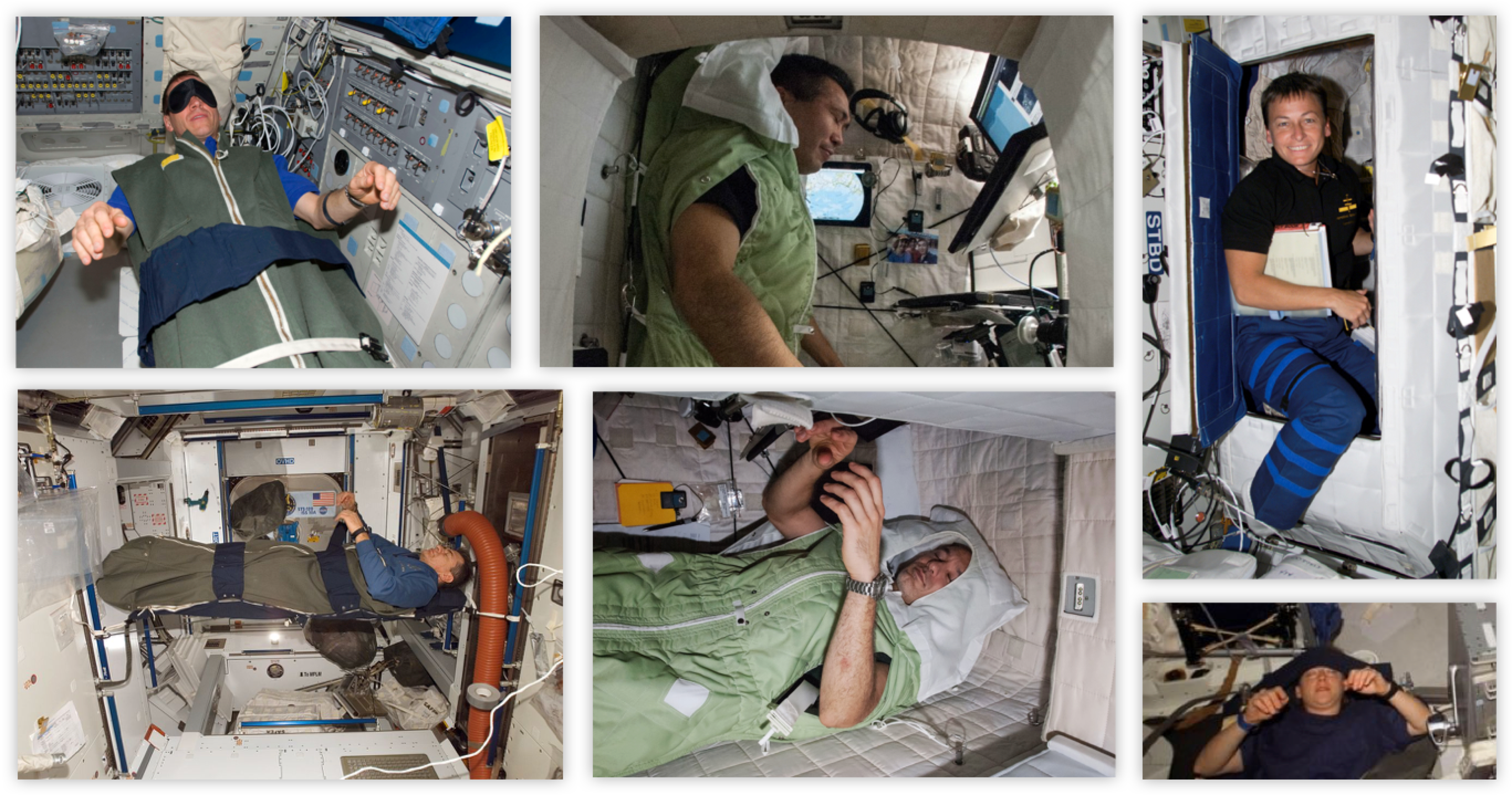
Current Sleeping Environment
Sleep Deprivation
73% of the astronauts relied on sleeping aid pills like Ambient or Zolpidem in at least half of the days of their mission. Noisy equipment, excessive light, sudden temperature changes disrupt the sleeping environment of astronauts.
"Astronauts suffer from sleep deprivation in space due to numerous factors in the spaceship environment. It keeps them from performing their task efficiently."
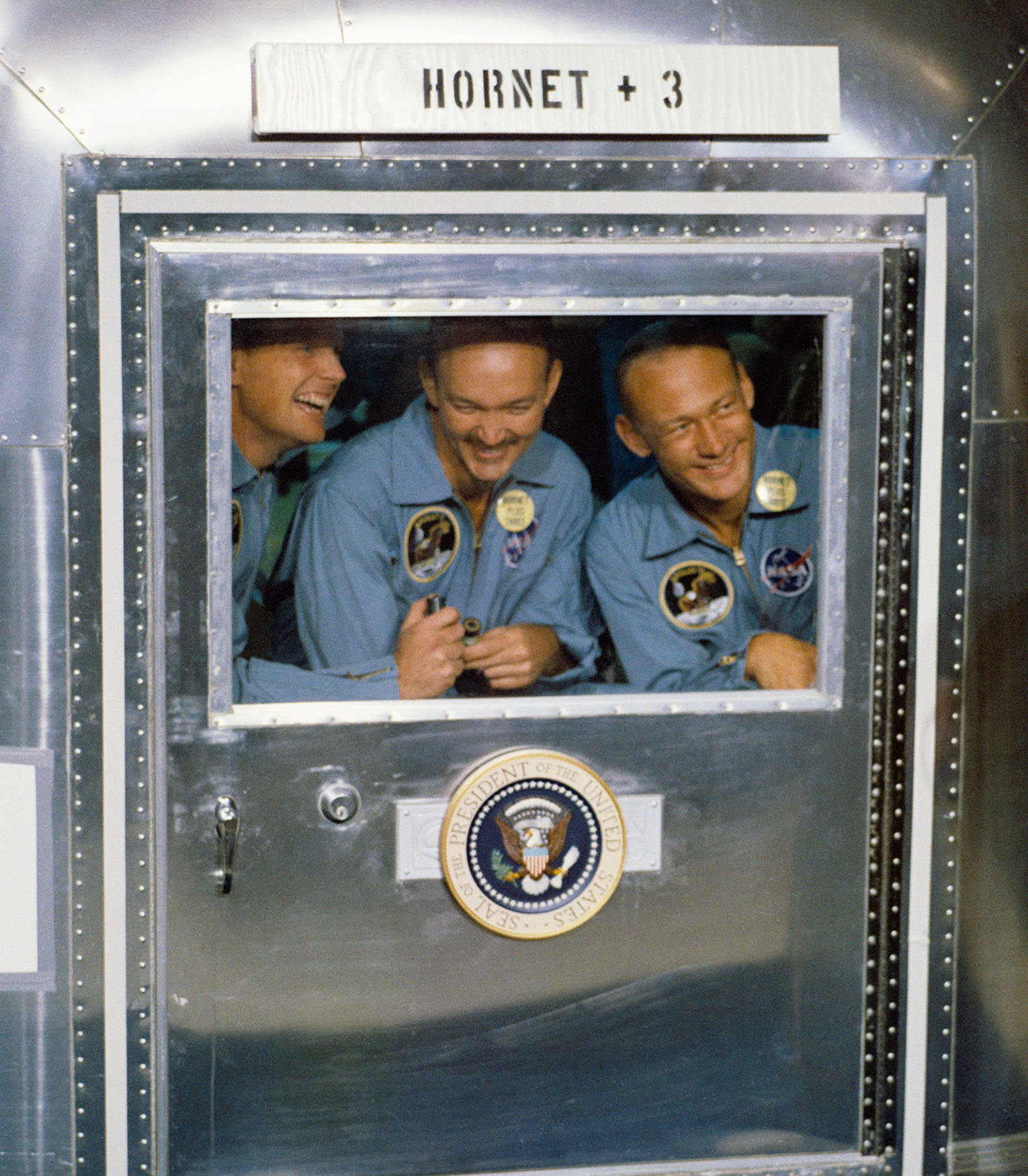
Problem
Current living facilities in space are very confined, uncomfortable and have little private space for crew members.
How could we improve the living conditions in space? Here, we decided to focus on sleeping and taking rest.
Ideation
We tried to come up with the idea that can technically be done while it meets our users' needs. The major constraints we have considered were gravity, small space, and non-flammable materials.
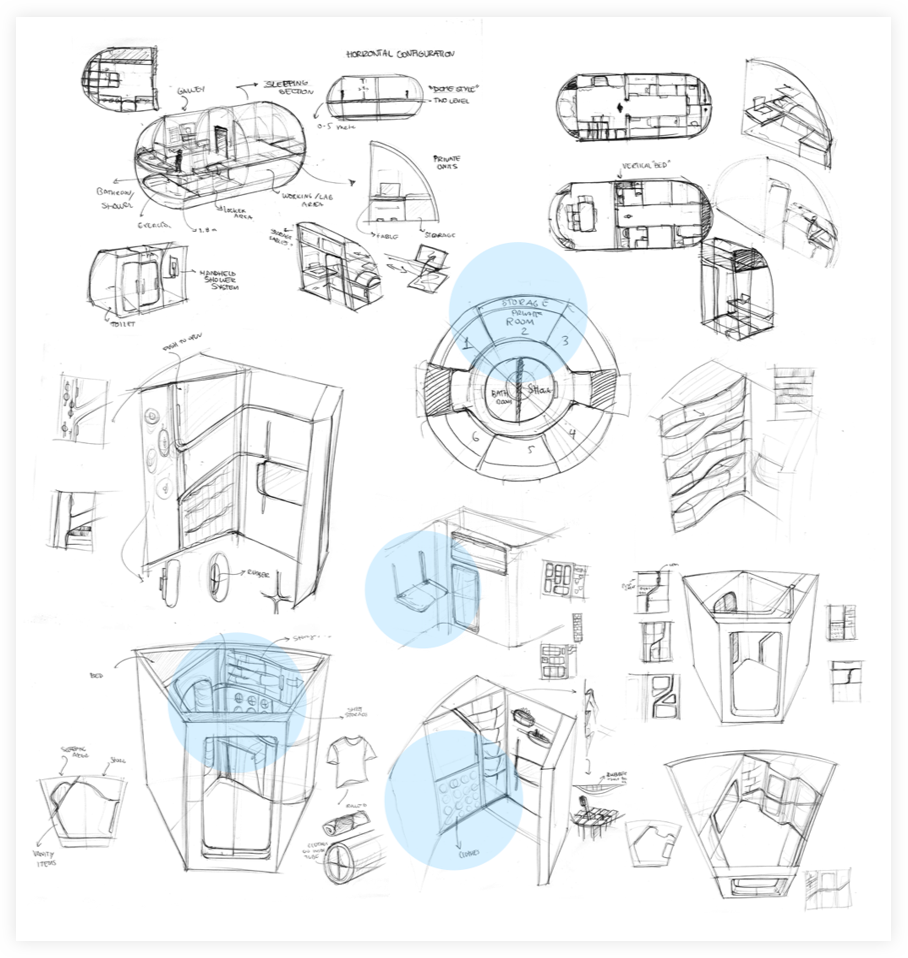
Generated idea together
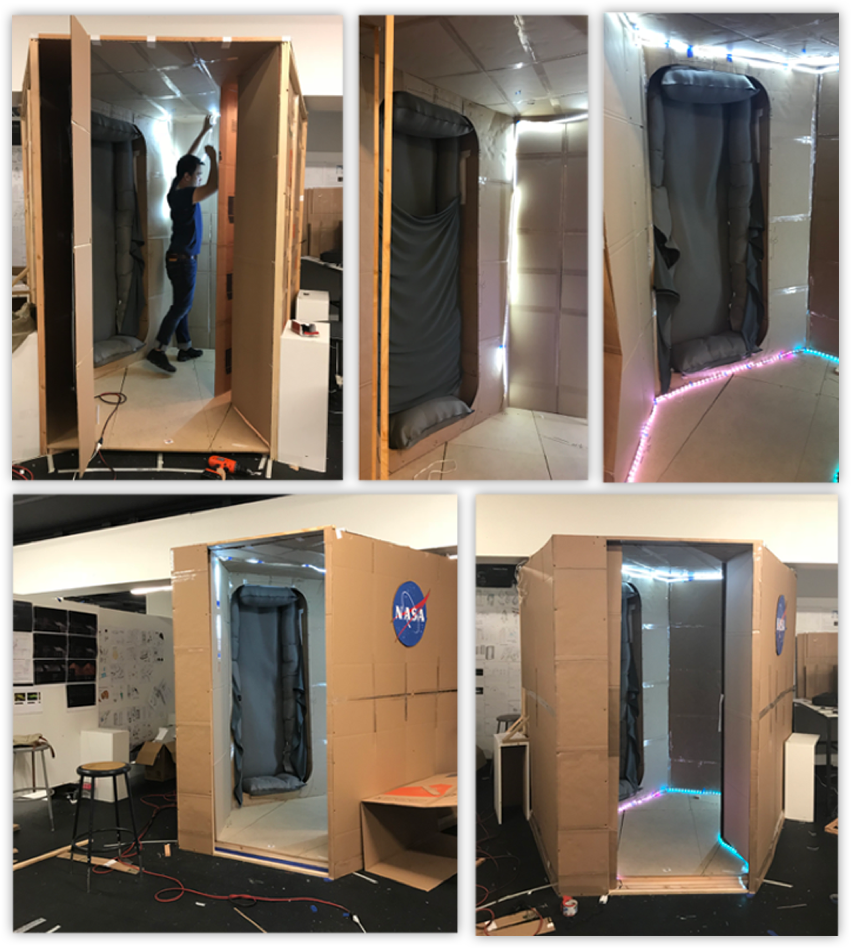
Industrial designers built mock for a test
Solution
Redesign the whole transit habitat that gives crew members a better experience of sleeping and resting. Each room has a workstation screen for the day and a bed screen for the night.
- interior look
- Workstation screen
- bed screen
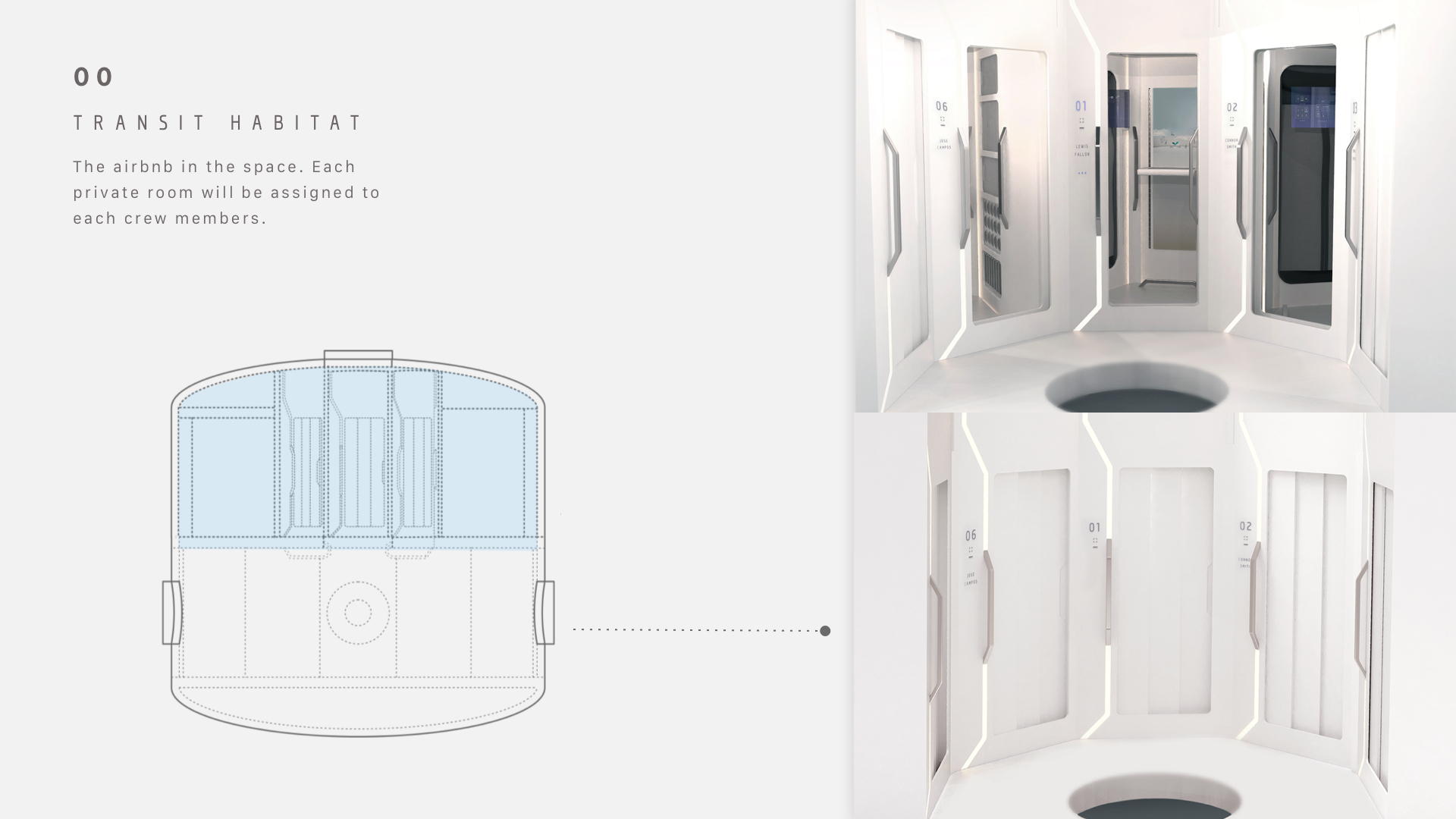
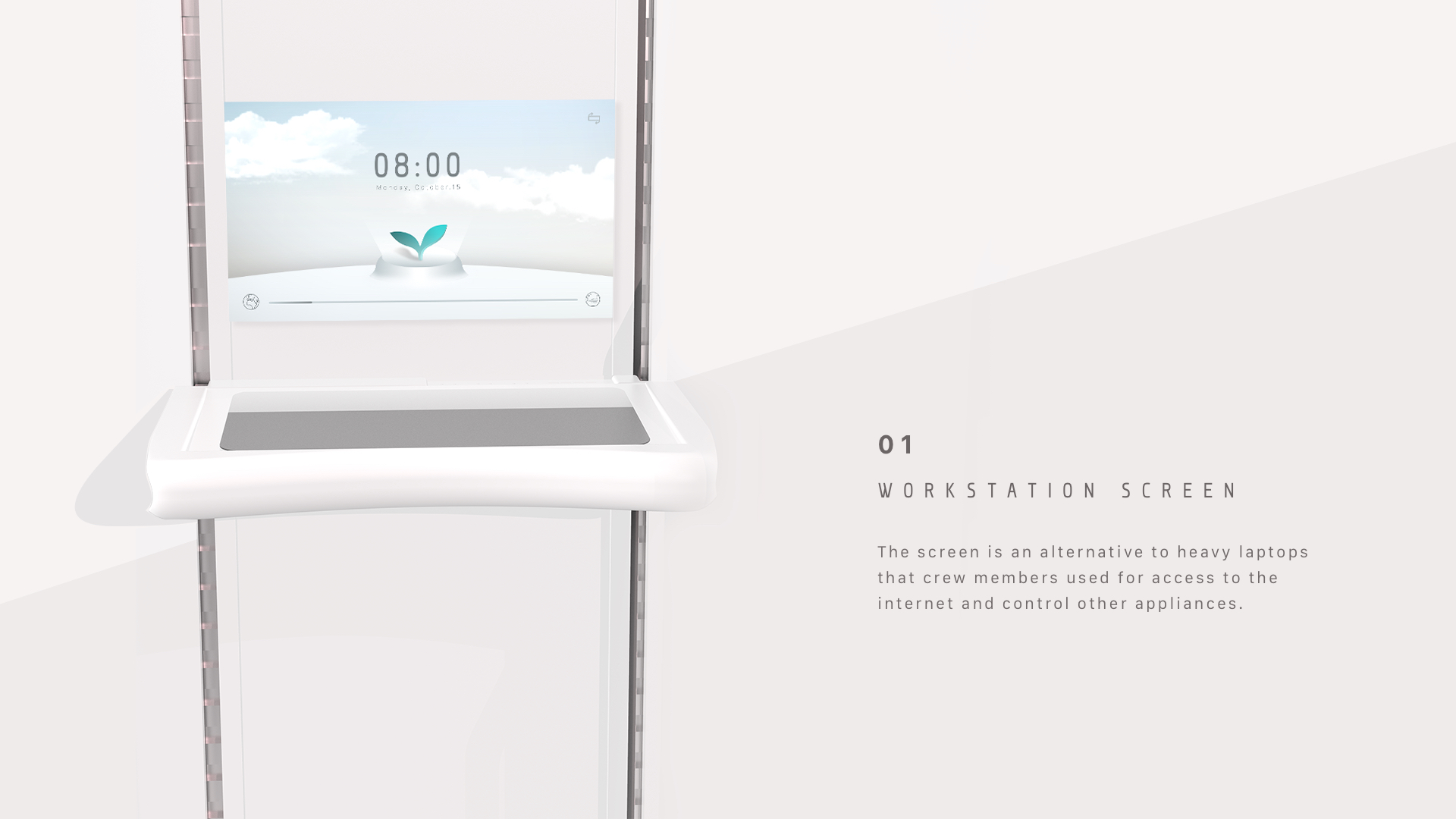
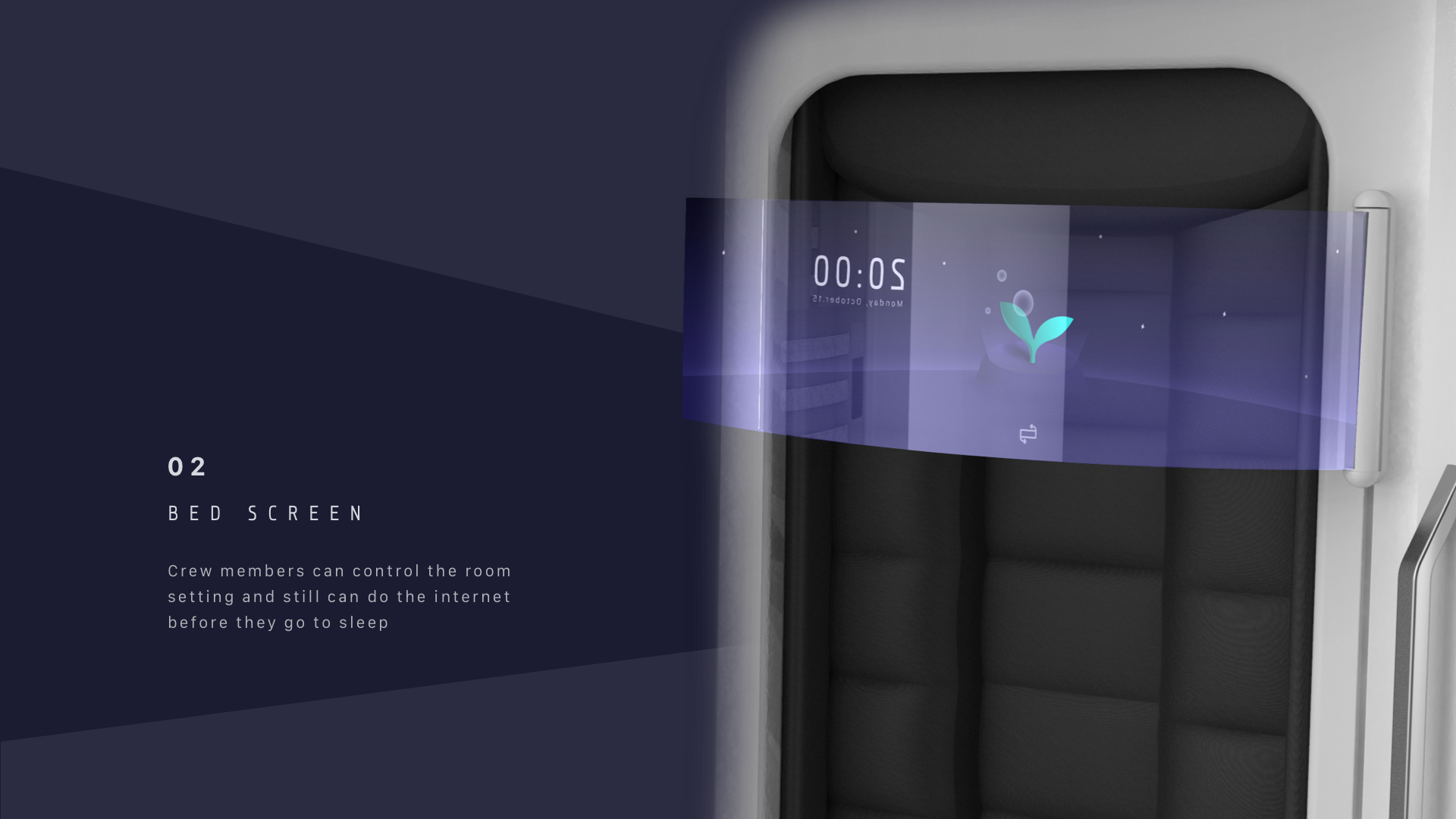
Workstation Screen
01
Main Screen
Emphasized on the nature to give a feeling of Earth
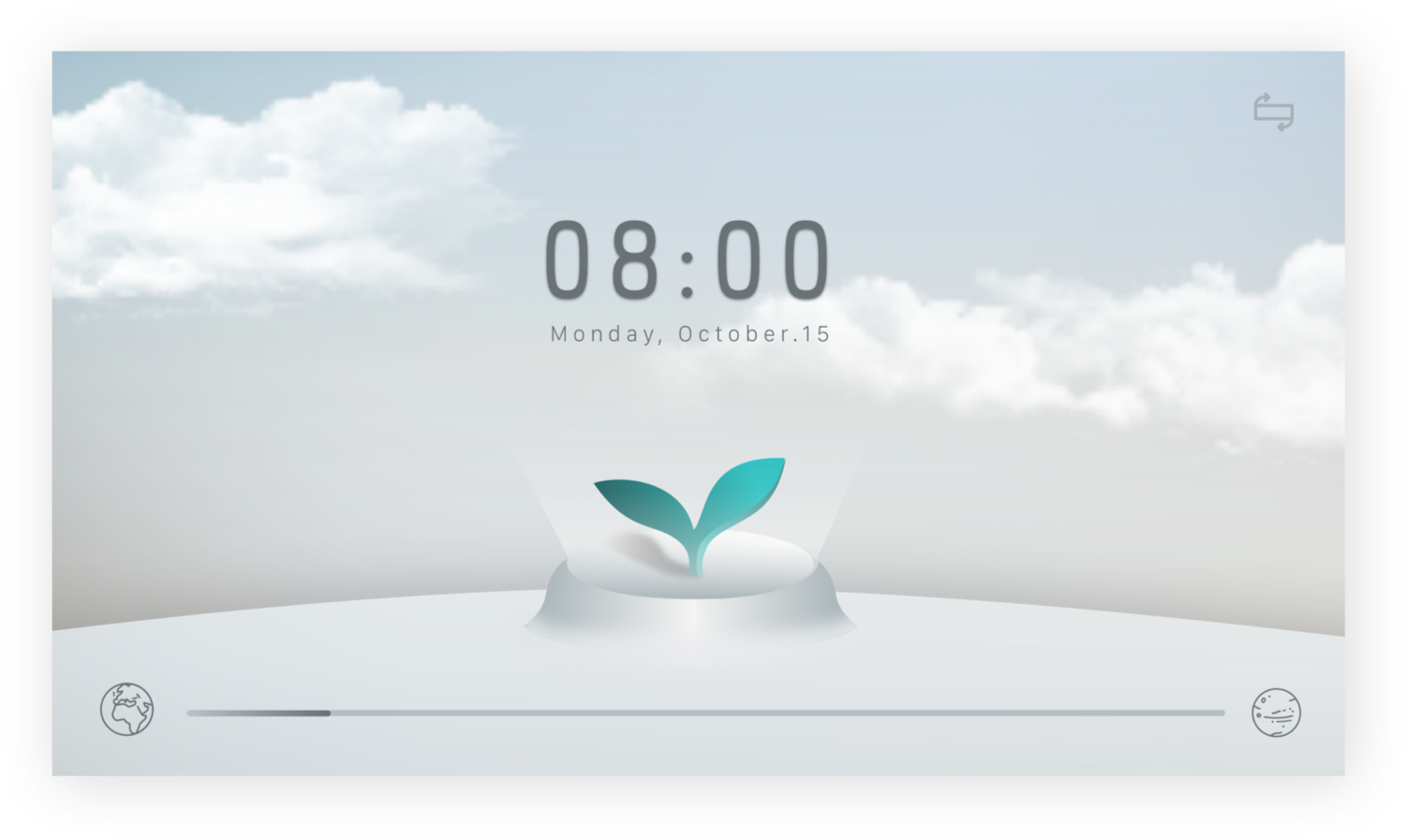
Main Screen (Day)
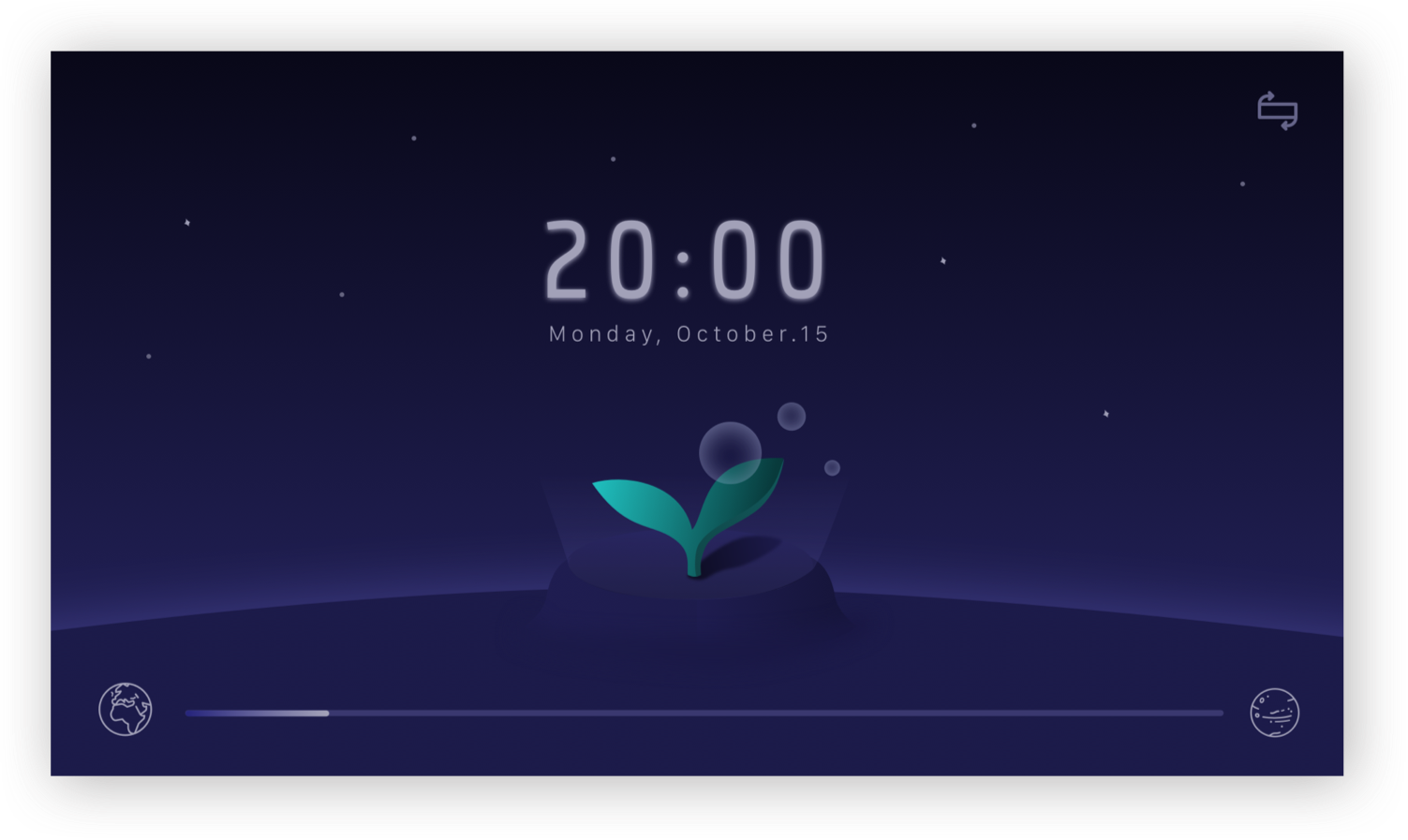
Main Screen (Night)
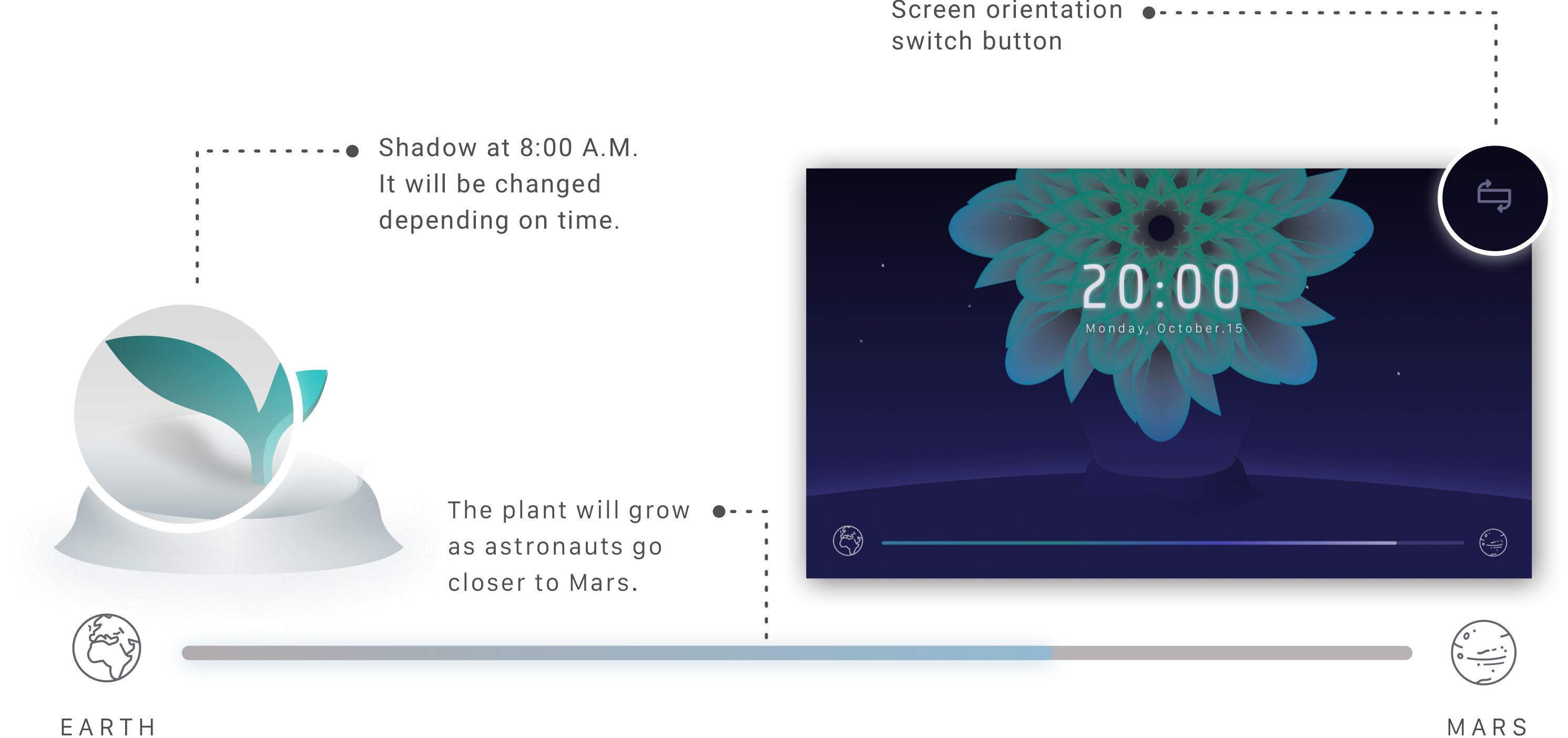
02
Navigation
Touch five fingers to the screen and have it all

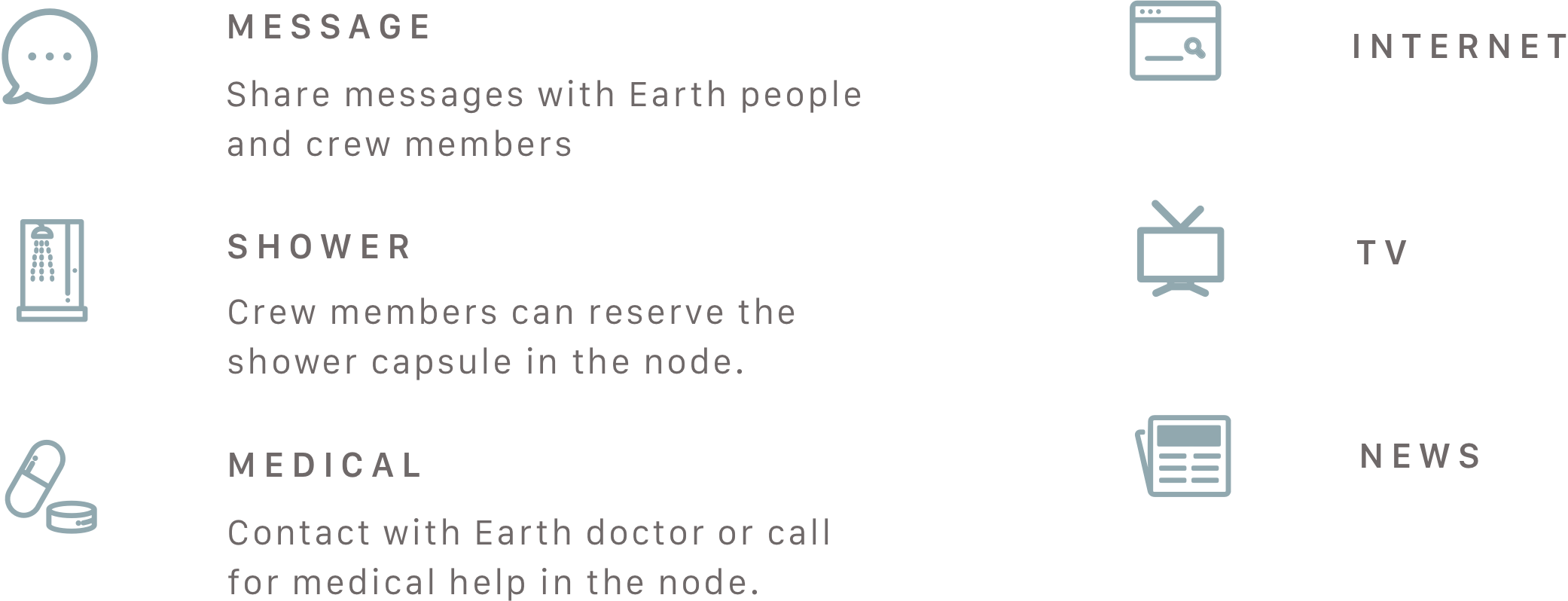
03
Reserve Shower Capsule
The assumption here was that there would be three shower capsules in the node. As they live in a communal setting, making a reservation for shower capsule would save crew members’ time
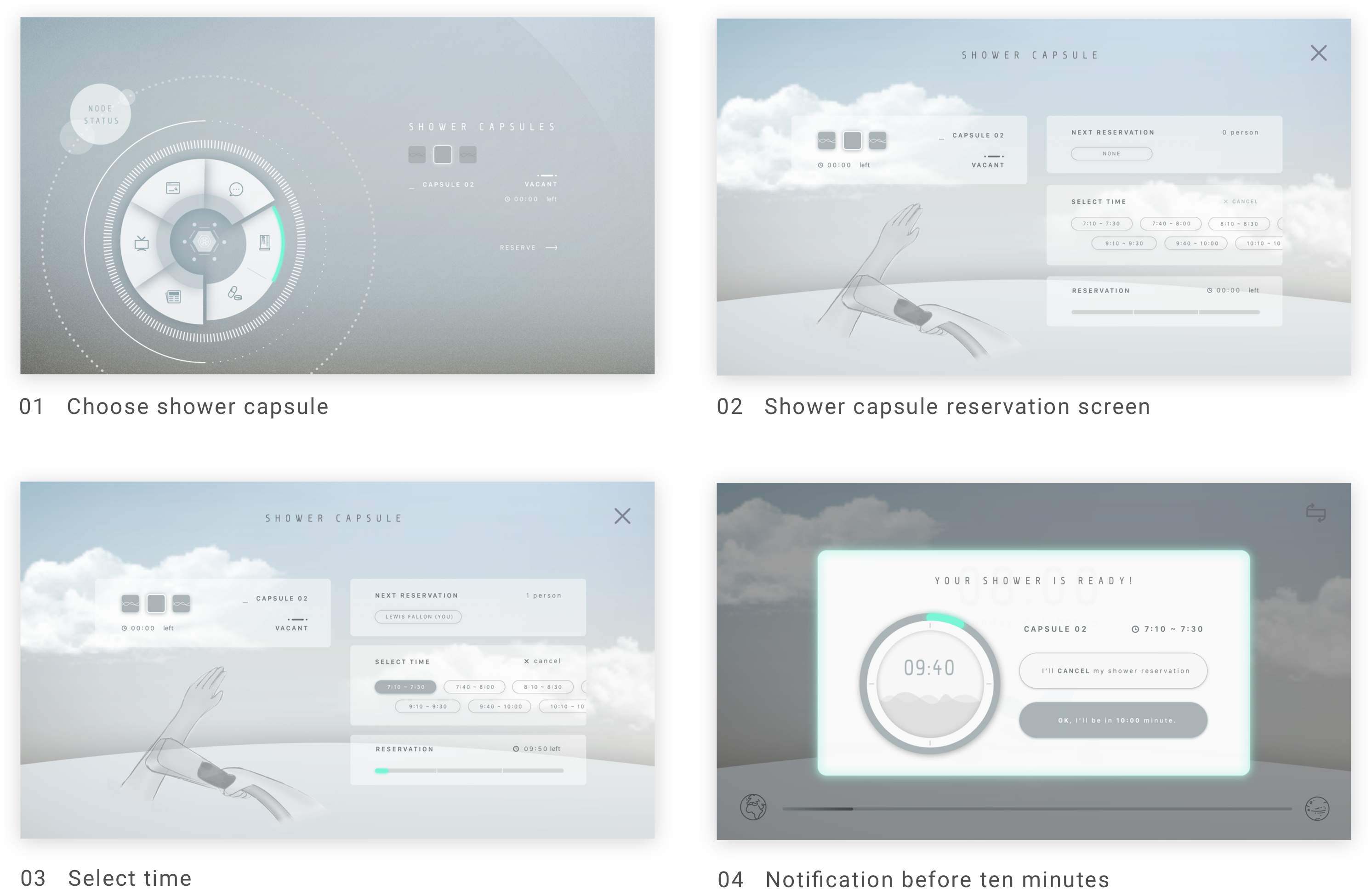
Bed Screen
01
Main Screen
Astronauts can see what they need before they go to sleep
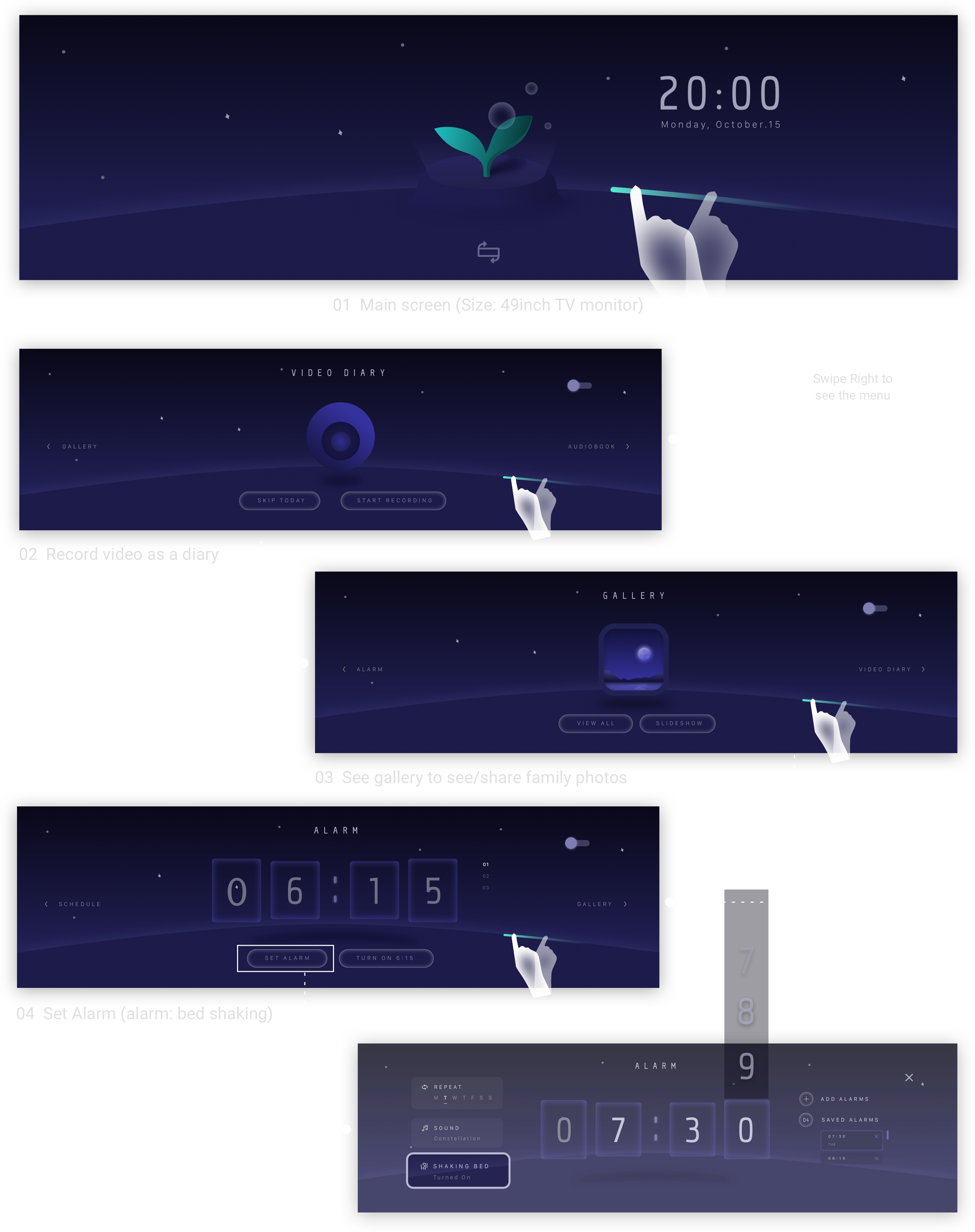
02
Room Settings
Control every room settings on screen
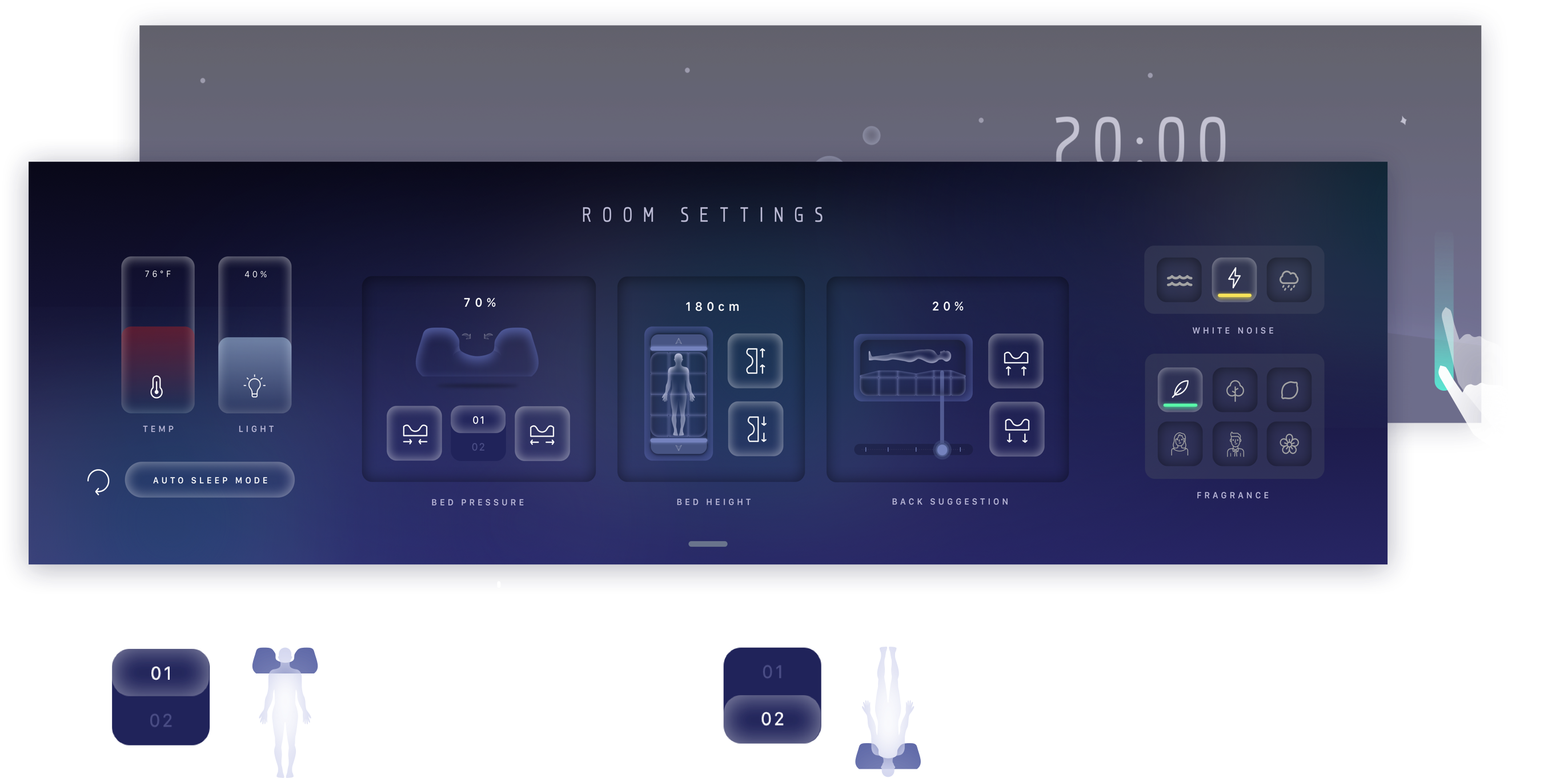
03
Send Message
Contact Earth people or co-workers
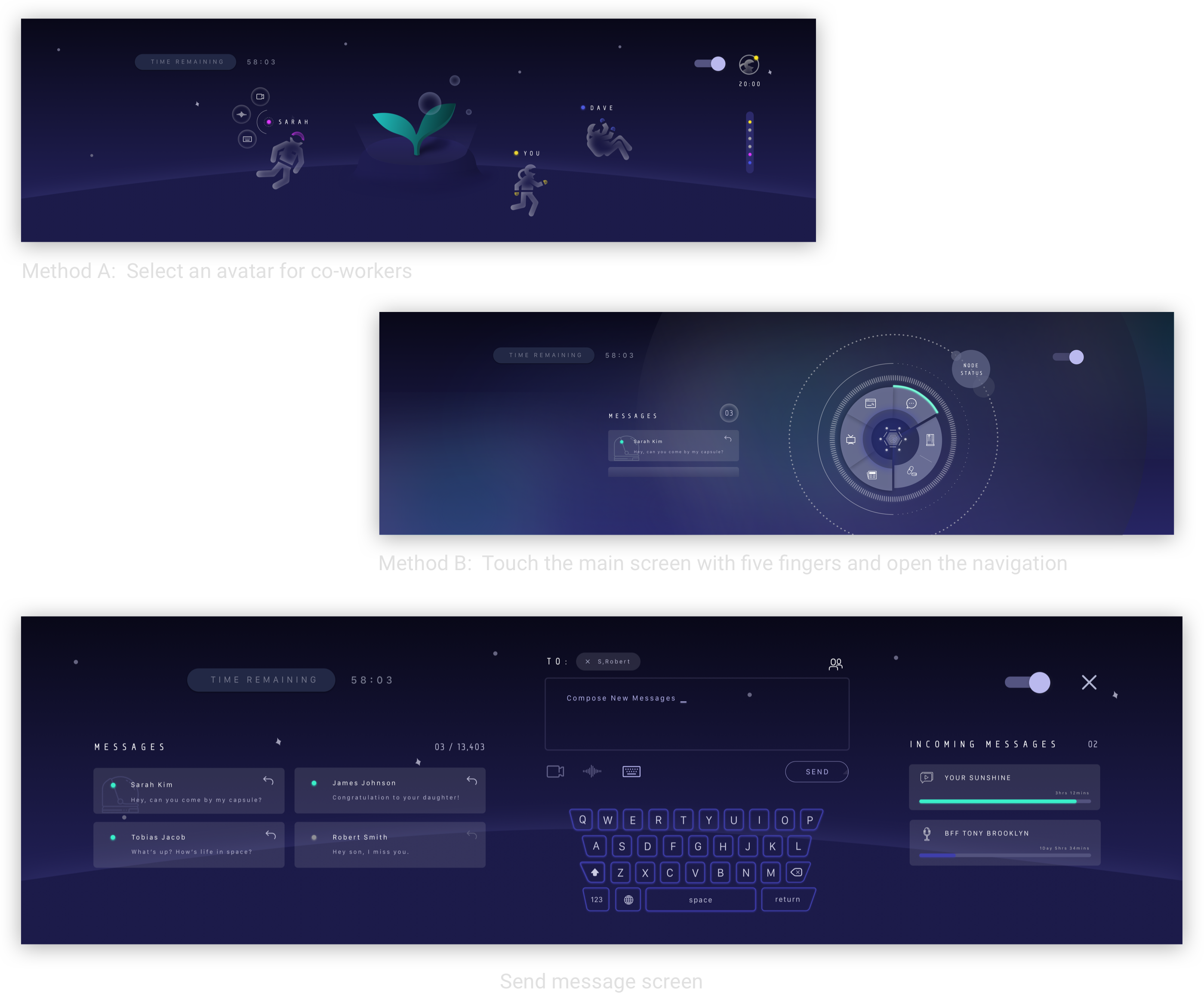
“Power of Whitespace”
It’s no need to use the whole space of the big screen. It needs white space as well as the small screens because it creates harmony and balance.

